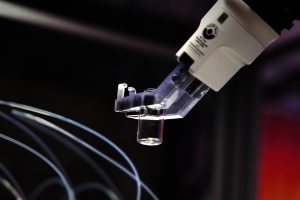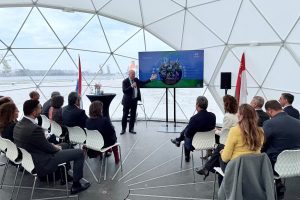Under the agreement, Korea Shipbuilding & Offshore Engineering (KSOE) will work with the German research institute Fraunhofer IKTS and Estonian-Finnish fuel cell stack manufacturer Elcogen to begin designing and prototype testing for large-capacity SOFC systems that are used in ships and power generation. KSOE and Fraunhofer IKTS have been collaborating since February 2022 for the basic design of SOFC systems.
SOFC produce electrical energy by inducing a chemical reaction between oxygen and a variety of fuels such as hydrogen, natural gas, ammonia, methanol, and biofuel. They are suitable for ship engines and cogeneration as they are highly energy efficient and can use waste heat generated from high-temperature operation (600~1,000°C). SOFCs are considered the most advanced among all fuel cells developed to date.
In addition, KSOE plans to leverage Fraunhofer IKTS’s water electrolysis technologies and Elcogen’s capacity to produce the key components of fuel cells, in order to acquire technologies for producing eco-friendly hydrogen.
Sungjoon Kim, Senior Executive Vice President and head of KSOE’s Advanced Research Center, said: “HD Hyundai aims to establish a hydrogen value chain that encompasses the production, transport, storage, and use of eco-friendly hydrogen. The MOU will allow us to acquire key technologies in the fields of green hydrogen production and fuel cell system manufacturing.”
KSOE formed a consortium with Shell and Doosan Fuel Cell in October last year to validate fuel cells for ships, and a test bed for the validation is currently under operation.






